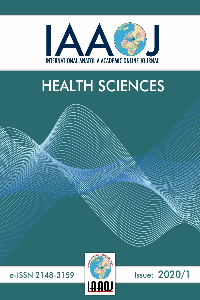
International Anatolia Academic Online Journal Health Sciences
Yazarlar: Özgür Cem Müsri, Serhat Oğuz, Şaban Gürcan, Taner Özgürtaş, Tülin Yalta, Gokhan Tazegul, Fatma Yalçın Müsri
Konular:Sağlık Bilimleri ve Hizmetleri
Anahtar Kelimeler:Carnosol,Intestinal ischemia-reperfusion,Antioxidants
Özet: Intestinal ischemia-reperfusion injury (II/R) is a condition with significant morbidity and mortality. In this study, we aimed to demonstrate the protective effect of carnosol, an anti-oxidant, anti-inflammatory, anti-carcinogenic and anti-microbial agent, on pro-inflammatory cytokines, tissue angiopoietins, histopathological damage and bacterial translocation in rats subjected to II/R injury. Thirty male Sprague-Dawley rats were divided into 3 groups: control group, intestinal ischemia/reperfusion group (II/R) and carnosol group (II/R+C). Ischemia-reperfusion injury was conducted by laparotomy. All rats received 1010 colony forming units/milliliters E.coli 12 hours prior to surgery. II/R+C rats received 3 mg/kg/day carnosol per oral starting from 3 days prior to surgery. After 72 hours of post-surgical follow-up, rats were re-laparotomized for specimen collection. II/R+C group had lower serum TNF-α, IL-1β and IL-6 levels when compared with II/R group (p=0.026, 0.006 and 0.045, respectively). II/R group had significantly higher tissue injury when compared with II/R+C group (p<0.001). II/R+C group rats had significantly reduced liver, spleen and mesenteric lymph node culture growths when compared with II/R group. Angiopoietin I and II levels were similar between groups. In conclusion, carnosol is a powerful anti-inflammatory and anti-microbial agent in II/R injury model. We showed effective reduction of pro-inflammatory cytokine profile, improvement of histopathological damage, and prevention of bacterial translocation.